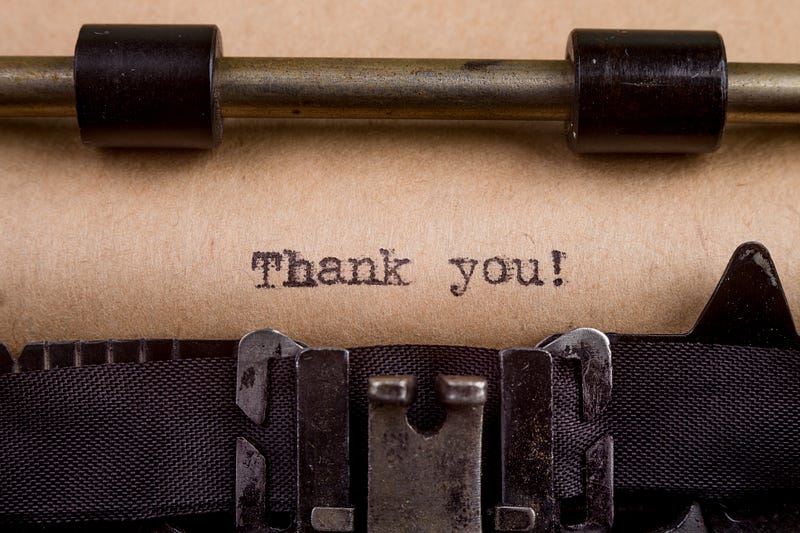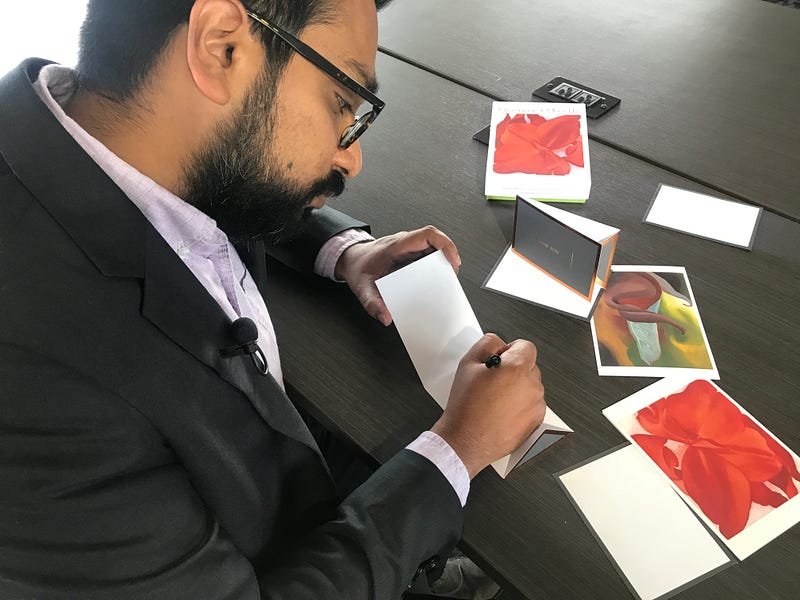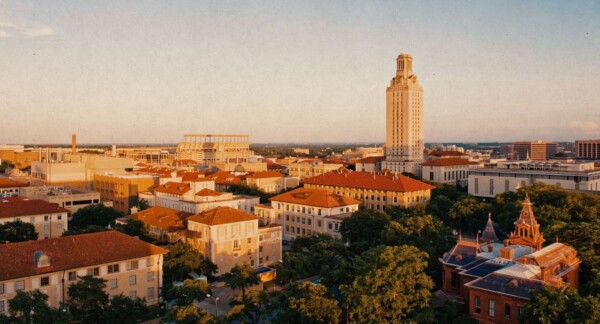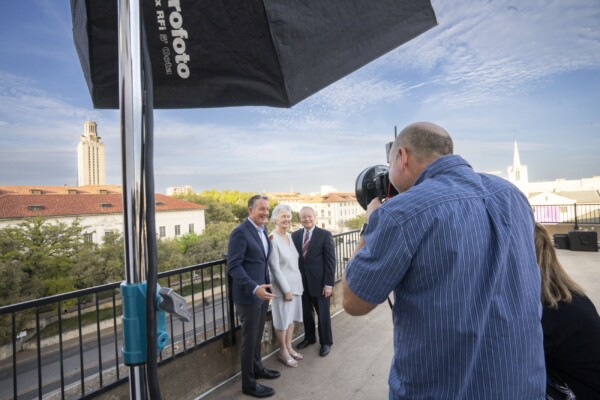Thanks, but No Thanks
Why we tend to withhold our gratitude, and why researchers say that needs to change.
Based on the research of Amit Kumar

Expressions of gratitude are good for you. But people often hold back from sharing that sentiment, stymied by their own beliefs about the perceived value of saying “thanks.”
“Researchers have known for 15 years that gratitude improves well-being. There’s lots of work done on this already,” says Amit Kumar, assistant professor of marketing at the McCombs School of Business and lead author of a new paper that examines the consequences of showing appreciation. “What was interesting to me is that even though it’s something that’s well-known, people still don’t express gratitude all that often.”
To find out why, Kumar and his co-author Nicholas Epley, from the University of Chicago, conducted a series of studies recently published in Psychological Science looking at what happens when people send letters of gratitude.
Their findings offer insight into why people tend to withhold their gratitude, shattering some myths, and validating a simple message: Your appreciation means far more to people than you think.
The act that counts
It’s not that anyone believes sending a letter of gratitude will offend, per se. “But people think it’s not that big a deal,” says Kumar, a social psychologist who studies happiness and well-being.
To test just how much people undervalue their own expressions of gratitude, Kumar and Epley asked hundreds of people to email or write out a brief but specific letter of thanks to someone who had helped them in some important way.
Then they had each letter-writer guess (using a rating scale) how the note would affect the recipient in several distinct categories: Would they feel surprised to receive the letter? Would they be surprised about the specific content of the letter — in other words, did they already know how much their kindness was appreciated? Would reading the compliments make them feel awkward? And, finally, how would reading the letter affect the recipients’ overall mood? Then the researchers followed up with the recipients themselves — asking them the same questions with the same rating scale — to get the real scoop.
The results: “People were not very good at predicting their recipient’s actual experience of reading the letter,” Kumar says.
Though the letter-writers knew that recipients would be somewhat surprised and happy to receive the letter, they significantly underrated just how surprised and happy. Expressers also assumed that a barrage of compliments would make recipients feel awkward; it didn’t.
“Recipients are genuinely happy about an expression of grateful feelings.” — Amit Kumar
Competence versus warmth
But the authors found something else standing in the way of gratitude too. In perhaps the most revealing set of experiments, they asked expressers to rate their own competence in saying thanks. In writing the letter, how well were they able to express their gratitude with “just the right” words? And how articulate do they think they came off to their recipient? These questions were coupled with questions about whether recipients would judge the letter as warm and sincere.
Again, the authors followed up with recipients to see how well the letter-writers did at gauging their thoughts. Not well at all, it turns out.
“We found that expressers may worry inordinately about how they are expressing gratitude — their ability to articulate the words ‘just right’ — whereas recipients are focused more on warmth and positive intent,” the authors wrote.
“When we’re thinking about ourselves, we tend to think about how competent we are — are we going to be articulate in how we’re expressing gratitude,” says Kumar.
That view may create an “unwarranted barrier” to expressing gratitude more often in everyday life, the researchers say.

Missed opportunities
To confirm that suspicion, Kumar and Epley asked participants to think of a few people to whom they felt grateful. The researchers then tested whether each participant’s expectations about their recipient’s anticipated mood correlated significantly with the participant’s likelihood of expressing gratitude.
The results weren’t very surprising: “People were most likely to write a letter to those they believed would respond most positively,” Kumar says. “So people’s willingness to express gratitude is guided by the expected value of a recipient’s response.”
In other words, self-doubt is hindering positive social connections in daily life. That’s a big deal: “These connections are a powerful source of well-being,” the authors say. “But people have to choose to engage in them.”
Indeed, the series of studies reconfirmed that expressing thanks offers its own rewards. People who looked past their self-doubts (in the name of science) and wrote out their gratefulness were happier than before.
“What we saw is that it only takes a couple minutes to compose letters like these — thoughtful and sincere ones,” says Kumar. “It comes at little cost, but the benefits are larger than people expect.”
So pick up your pen, keyboard, or phone and write that thank-you note.
“Undervaluing Gratitude: Expressers Misunderstand the Consequences of Showing Appreciation” was published in Psychological Science.
Story by Judie Kinonen


